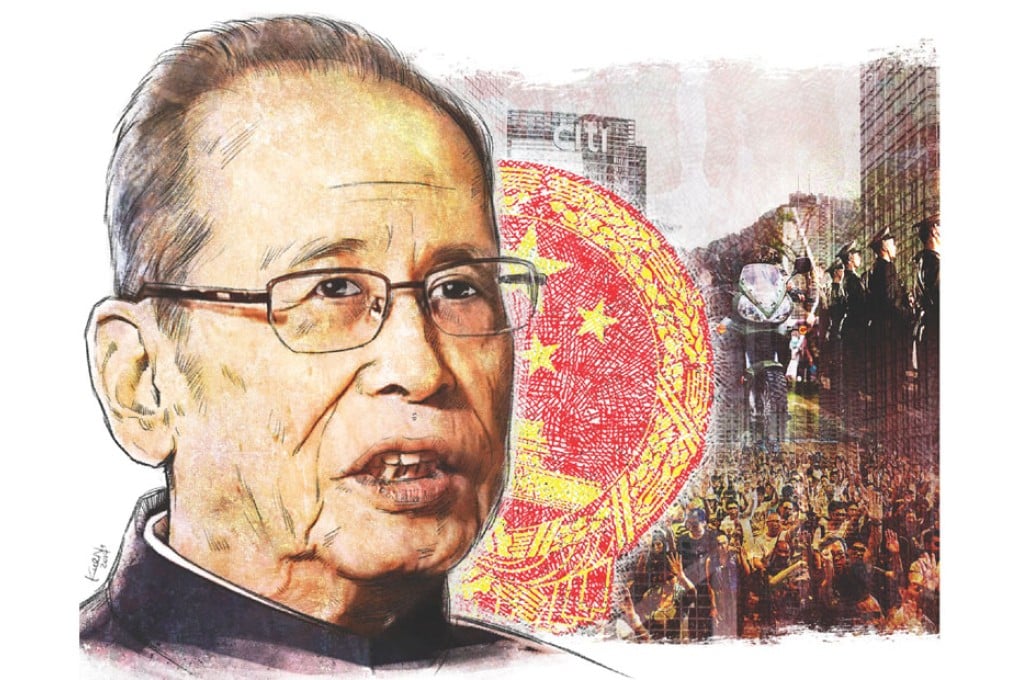'Poet diplomat' Zhou Nan takes aim at Occupy Central
Former Xinhua director and thorn in the British side back in the news for warning that PLA could suppress pro-democracy movement

Nicknamed the "poet diplomat" thanks to a penchant for sprinkling his comments with lines from classical Chinese poetry, Zhou Nan raised eyebrows recently with his outburst over protests planned by the Occupy Central pro-democracy movement.
In an unusually explicit manner, Zhou - a former top Chinese official centrally involved in the Sino-British handover negotiations - warned that the People's Liberation Army would be deployed if the proposed sit-in degenerated into riots.
"Occupy Central … is illegal and violates Hong Kong's rule of law," Zhou told two local TV stations. "This has demonstrated that a portion of the anti-China forces inside and outside Hong Kong are conspiring to usurp the jurisdiction of the city, which should never be allowed."
Zhou quoted former Communist Party leader Deng Xiaoping as saying that one of the PLA's functions is to handle riots. "[The party] would not allow Hong Kong to turn into a base to subvert China's socialist regime under the guise of democracy," Zhou added.
While some in Hong Kong may have laughed off the suggestion that foreign powers might take advantage of Occupy in order to seize control of the city, veteran analyst Johnny Lau Yui-siu said Zhou's words represented China's bottom line - and should be taken seriously.
In his book The Fall of Hong Kong, journalist Mark Roberti wrote that Zhou "was witty and urbane and liked to charm people by quoting classical Chinese poems". Roberti, who covered Hong Kong in the 1980s and early 1990s for the now defunct Asiaweek magazine, also described Zhou as "a sophisticated international diplomat".